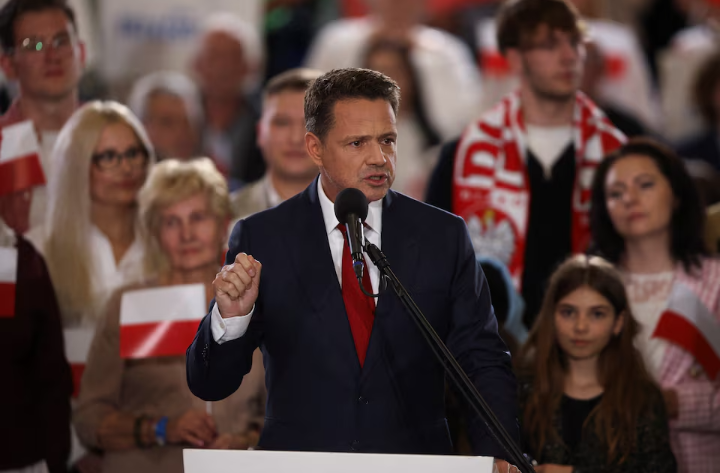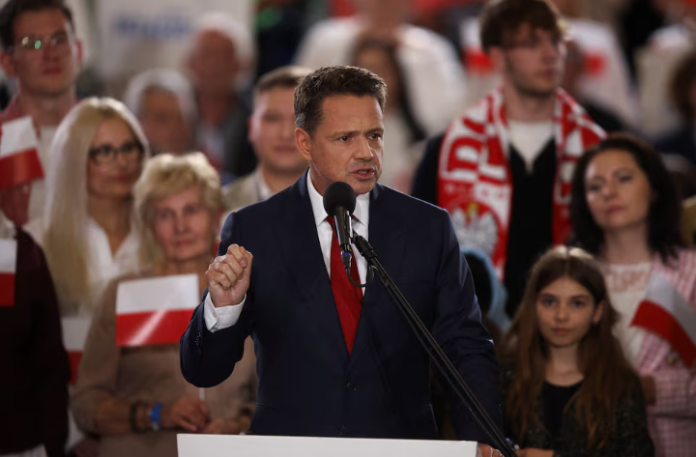Poland is heading toward a dramatic presidential runoff on June 1, and the race is tighter than anyone expected. With centrist candidate Rafal Trzaskowski and nationalist-backed Karol Nawrocki neck-and-neck after the first round, the next two weeks will be crucial in deciding the country’s political future—and its direction on European relations.
In the first round of voting held on May 18, Trzaskowski, the current mayor of Warsaw and candidate of the ruling pro-European Civic Coalition (KO), secured 31.4% of the vote. He was closely followed by Karol Nawrocki, supported by the conservative-nationalist Law and Justice party (PiS), with 29.5%. The narrow margin stunned many, especially after opinion polls had projected a more comfortable lead for Trzaskowski.
But the real surprise was the far-right surge.
Together, Slawomir Mentzen of the Confederation party and Grzegorz Braun, known for his controversial acts including extinguishing Hanukkah candles in parliament, claimed over 21% of the vote. This marks the strongest performance ever by far-right candidates in a Polish presidential election and indicates a growing shift among young and disillusioned voters.
The runoff is shaping up to be more unpredictable than ever. A post-election poll by Opinia24 shows Trzaskowski with a slim lead of 46% to Nawrocki’s 44%, with 10% of voters undecided. The next few days will be a scramble by both camps to win over supporters of eliminated candidates.
Trzaskowski has called for unity and constructive dialogue: “We have to talk to everyone. The most important thing is to focus on the arguments. I’m glad so many young people voted, but convincing them to support me now is a big challenge.”
On the other hand, Nawrocki aims to appeal to a broad spectrum, saying his commitment to social welfare policies and national values could attract both left-wing and conservative voters.
But the far-right influence complicates the picture. Mentzen, with his eurosceptic, economically liberal, and anti-immigrant agenda, won over many young voters disillusioned with both KO and PiS. However, he has been openly critical of Nawrocki, making it unclear whether his supporters will automatically back the PiS candidate in the runoff.

Left-leaning candidates scored just over 9% collectively, but neither offered a clear endorsement of Trzaskowski. Magdalena Biejat, a member of his ruling coalition, stressed that the mayor must now prove he respects and values the left’s concerns.
The stakes couldn’t be higher. Prime Minister Donald Tusk’s pro-European agenda has faced pushback from outgoing President Andrzej Duda, a PiS ally. A Trzaskowski victory would give the government much-needed support to reverse controversial judicial reforms and strengthen ties with the EU. A Nawrocki win could signal continued nationalist resistance and a bolder stance from the far right.
As Poland waits for the final outcome, all eyes are on the youth vote, undecided voters, and the far-right base—each capable of tipping the scales in one of the most consequential elections in recent Polish history.



